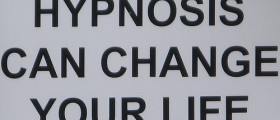
For most of the people, hypnosis is still a very mysterious thing. Most of the people associate the hypnosis with an image typically found in B-grade movies where hypnosis is misrepresented and promoted as a form of mind control rather than mind strengthening. Hypnosis is actually healing by the altered state of awareness, which is found in most of the different cultures throughout the world. The word hypnosis is derived from the Greek language where “hypnos” means “sleep”. However, hypnotic state is completely different than sleep, and it is best described as a state of mind enhanced by relaxation, in which the subconscious part of the being is able to communicate independently with our conscious mind.
The goal of hypnotherapy
Hypnotherapy is aimed to treat various psychological disorders, bad habits and unwelcome feelings. Hypnotherapy is a great way to promote a person’s individual development and unlock the inner potential, which is buried deep for some emotional reason. Everybody can be hypnotized but for the session to succeed it is also important that a subject is willing to be hypnotized and that he or she feels confident with the practitioner. Hypnotherapy is especially good in treatment of anxiety and panic disorders, phobias, addictions and bad habits, insomnia, low self-esteem, and as a means of stress management. Whole groups of professionals may find it extremely handy as it helps to reduce the fear of public performances and testing. Hypnotherapy is commonly prescribed as a successful stress management strategy.
Breaking the myths
One of the widely spread myths about hypnosis is that it alters the state of consciousness since the hypnotist controls the subject by his commands. However, this is completely untrue. Hypnosis actually expands the subject's awareness. For example, when we see a hypnotized person acting strange it doesn’t mean that a hypnotist makes her or him act that way. A hypnotist puts subjects in a situation where they are more comfortable to act in different ways they normally wouldn’t in front of a crowd.
During the hypnotic session people know they are just acting in a suggested way. However, some suggestions are more intimate and when the subject follows these suggestions, he or she is actually associating themselves with the suggestion. For example, when a hypnotist suggests “Think about the time you suffered a great loss”, a subject will truly think about it and connect to the real memories and emotions.
According to some published scientific studies, no more than 10% of people are suggestible to hypnosis. However, this is another myth since true hypnosis involves the use of a language that is most suggestible to that particular patient. Scientific studies, however, use general techniques and scripts.

















Your thoughts on this
Loading...